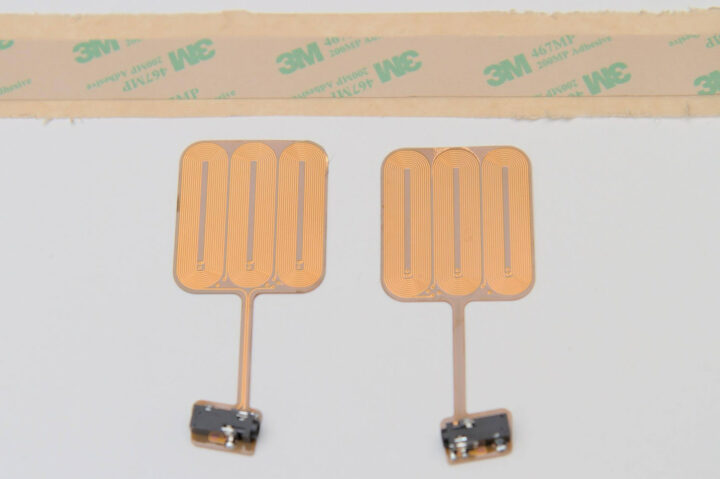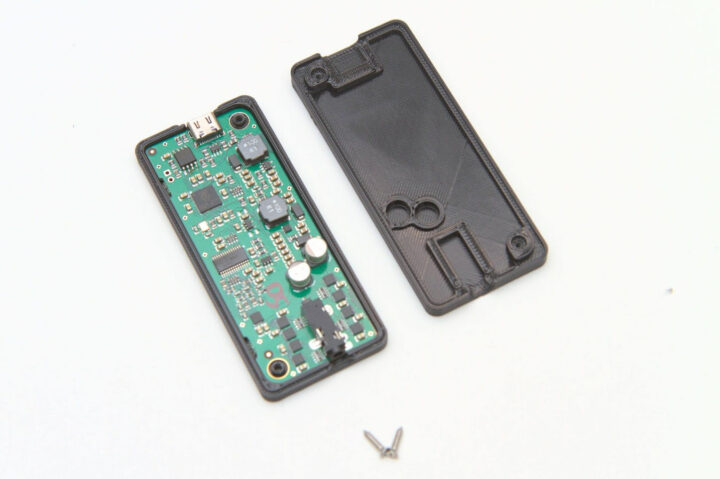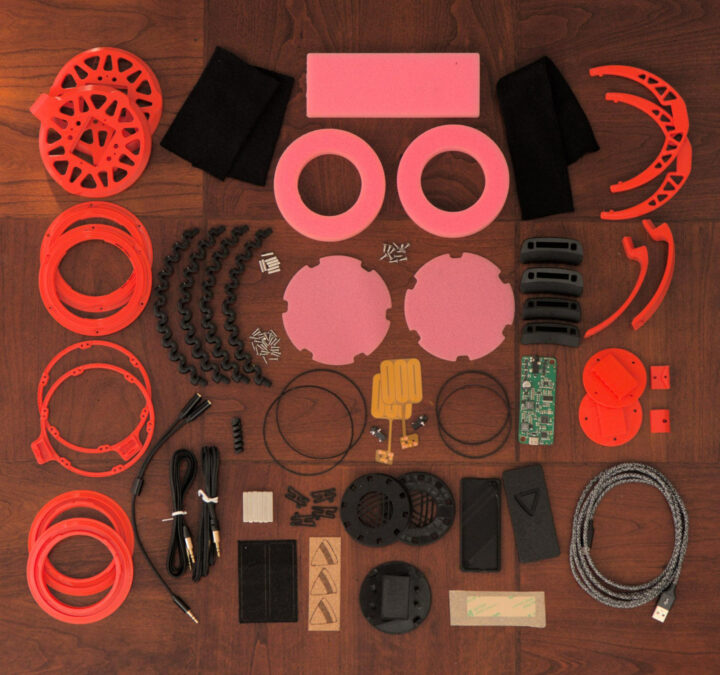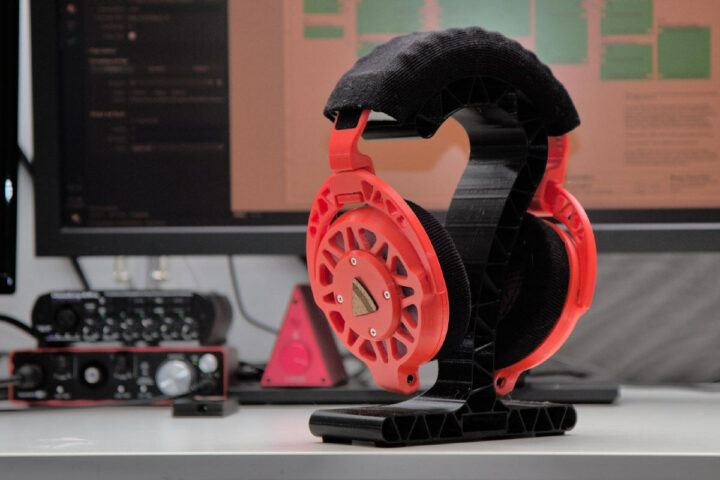I don’t think I’ve ever written about open-source hardware headphones. But that’s precisely what Ploopy offers with an amplifier based on a Raspberry Pi RP2040, a Texas Instruments PCM3060 24-bit DAC, and an amplifier circuit, as well as 3D printed parts and open-source firmware written in C.
As we’ll see further below the project is reasonably well documented, and you can either build it from scratch, purchase a fully-assembled kit, or something in the middle. I suppose you could even do some knitting since woven covers are part of the build just in case making your own PCBs and 3D printing parts are not your things.
The electronics are comprised of two boards:
- The Gould amplifier board with the Raspberry Pi RP2040, Texas Instruments PCM3060 24-bit 96/192 kHz DAC, and several TI OPA1688 audio operational amplifiers
- The Mazzoleni driver flex boards going into the left and right rings with a TRRM jack each.
Both boards are designed with Altium Designer.


The project comes with plenty of 3D printed bits available in DXF, STL, and STEP formats, and shown below as part of a complete kit with the electronics, cables, and fixtures.

Finally, you’ll also get the ploopy_headphones.uf2 firmware and its source code. Everything can be found on GitHub with the firmware released under GPLv3, and the hardware is under an OHL CERN v2-S license. You’ll find detailed assembly instructions in the Wiki section of the project’s GitHub repository. All in all, the Ploopy open-source hardware headphones project is impressive both in terms of its openness and documentation. I just wish I hadn’t had to open the schematics to derive some of the specifications for the amplifier board ;).
It’s also open to a wide range of makers and suitable to beginners who just want to assemble it themselves up to more experienced and skilled hobbyists who can build it from scratch by just using the resources on GitHub. The full kit shown above is up for pre-order for $149.99 CAD (about $111 US) and you just need to do the assembly, or if you could just bother and just want a Raspberry Pi headphone, the fully assembled version can be pre-ordered for $299.99 CAD ($185 US). Both can be found on the Ploopy store and several colors can be selected for the 3D printed parts.
Via Hackster.io

Jean-Luc started CNX Software in 2010 as a part-time endeavor, before quitting his job as a software engineering manager, and starting to write daily news, and reviews full time later in 2011.
Support CNX Software! Donate via cryptocurrencies, become a Patron on Patreon, or purchase goods on Amazon or Aliexpress





